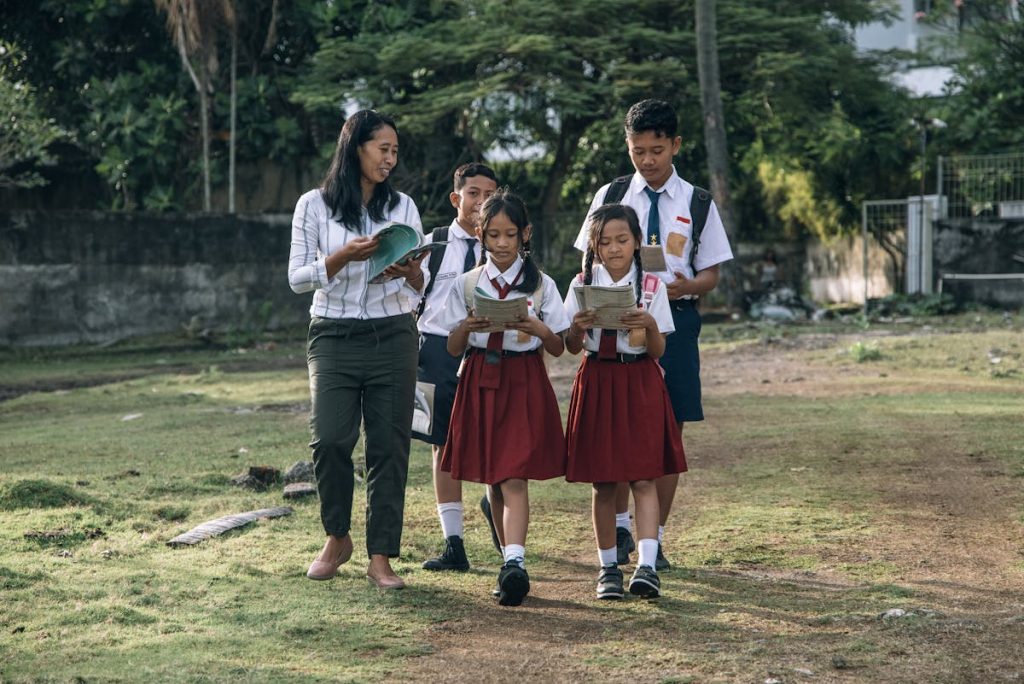School trips have long been a cherished part of the educational experience. Beyond just a break from classroom routines, these excursions offer valuable learning opportunities that enhance a child’s development in multiple ways. From academic enrichment to social growth, the benefits of school trips are far-reaching and impactful.
Enhancing Learning Beyond the Classroom
This independent school in Surrey suggests that one of the most obvious advantages of school trips is the chance to learn outside the traditional classroom environment. Visiting museums, historical sites, nature reserves, or science centres brings subjects to life in a way textbooks cannot. Experiencing history, science, art, or geography firsthand allows pupils to connect theory with real-world examples, improving understanding and retention.
For instance, a visit to a local museum might deepen a child’s grasp of history by seeing authentic artefacts. Similarly, a trip to a nature park offers practical insights into biology and environmental science. This hands-on learning fosters curiosity and encourages pupils to ask questions and explore subjects more enthusiastically.
Developing Social and Emotional Skills
School trips are excellent opportunities for children to develop important social skills. Being away from the familiar classroom setting encourages teamwork, communication, and independence. Pupils learn to navigate new environments together, share experiences, and build friendships.
Moreover, school trips often require pupils to manage themselves responsibly — from organising their belongings to following safety instructions. This nurtures self-confidence and resilience. For many children, especially those who might be shy or less confident in class, these trips can provide a platform to shine and grow emotionally.
Encouraging Cultural Awareness and Empathy
Visiting different places, whether local or abroad, broadens children’s horizons and fosters cultural understanding. School trips to diverse communities, historical landmarks, or international locations expose pupils to new customs, traditions, and ways of life. This experience nurtures empathy and respect for others, important values in our increasingly interconnected world.
By learning about different cultures and histories first-hand, children develop a more global perspective, which supports their personal development and prepares them for life beyond school.
Physical Activity and Wellbeing
Many school trips involve walking, exploring, or outdoor activities, contributing positively to children’s physical health. Active learning experiences, such as nature walks, sports workshops, or visits to farms, encourage movement and promote a healthy lifestyle.
Additionally, spending time outdoors has been shown to reduce stress and improve mood, which benefits overall wellbeing. For children who might find classroom settings stressful or confining, school trips offer a refreshing change that supports mental health.
Building Memories and Motivation
Beyond academic and developmental benefits, school trips create lasting memories. The shared experiences of a trip — whether it’s an exciting museum visit, an adventure in the countryside, or a cultural outing — stay with pupils for years. These positive memories can enhance their motivation to learn and look forward to school.
Teachers also find that pupils return from trips more engaged and eager to participate in related lessons, linking their experiences with curriculum topics. This enthusiasm can boost classroom dynamics and deepen learning outcomes.
School trips are far more than just fun days out; they are vital experiences that enrich pupils’ education and personal growth. By combining academic learning with social development, cultural awareness, physical activity, and motivation, school trips contribute to creating well-rounded, confident, and curious young people ready to face the future.
Encouraging schools to invest in and prioritise these trips can make a meaningful difference in children’s educational journeys.

